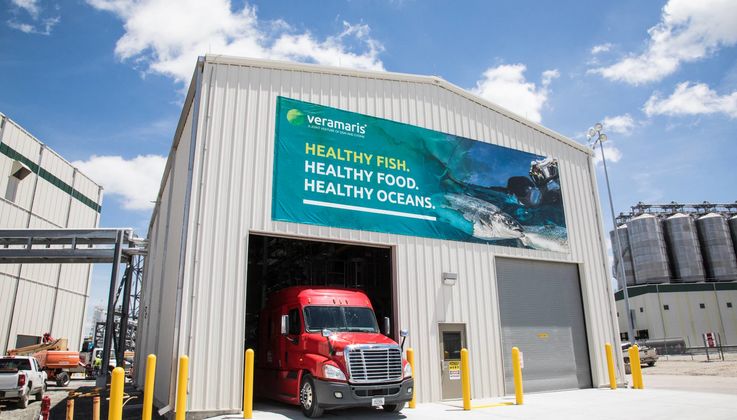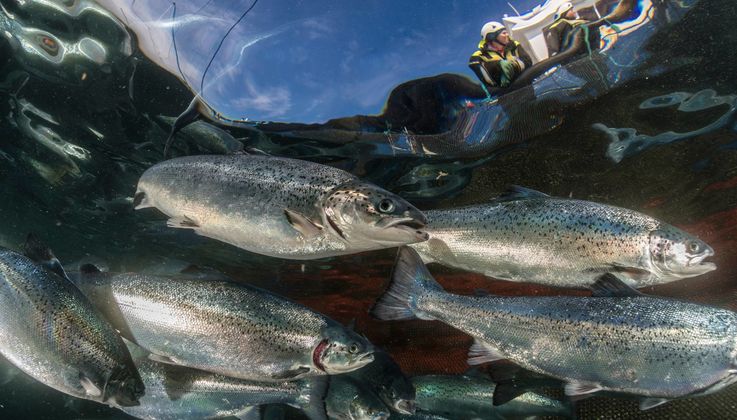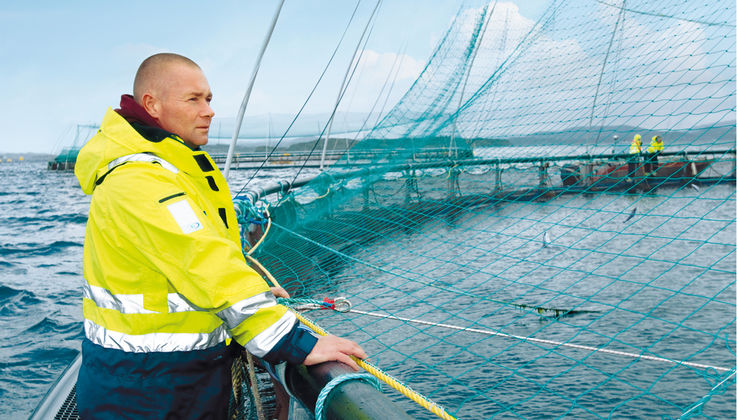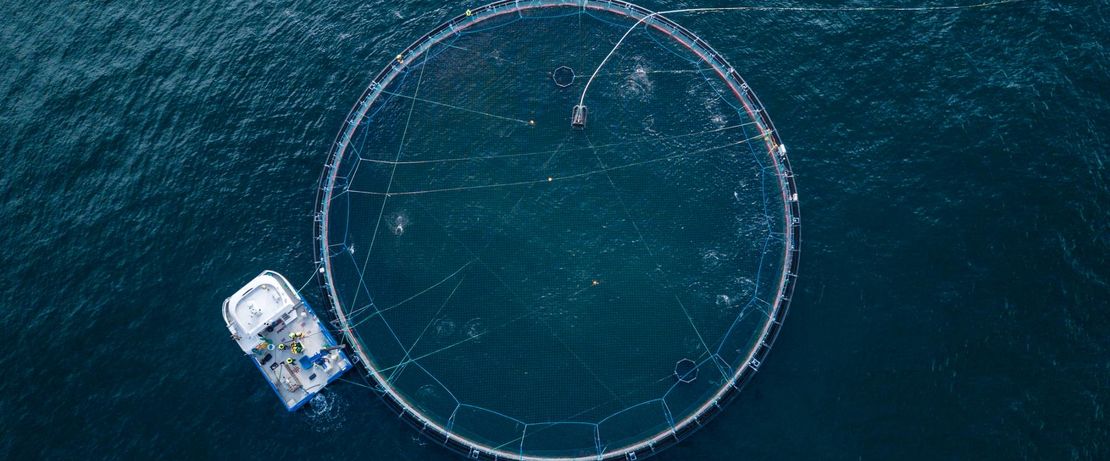
Sustainable Animal Nutrition
Good for People and the Ocean
A breakthrough in research aimed at protecting marine resources: Veramaris, a 50/50 joint venture with DSM, produces omega-3 fatty acids from natural marine algae—and makes salmon farming more
sustainable in the process.
Demand for fish is on the rise, particularly in developing and emerging economies. Fish is an affordable food and an ideal source of protein for human beings. In addition, cold-water fish like salmon supply two omega-3 fatty acids that are important for human health: EPA (eicosapentaenoic acid) and DHA (docosahexaenoic acid).
Over the past few decades, fish consumption has risen to roughly 20 kilograms per person per year. Because the volume of wild-caught fish has been stagnant at about 90 million metric tons since the 1990s, however, growth in consumption has been met by aquaculture. According to estimates by the United Nations’ Food and Agriculture Organization (FAO), the proportion of fish produced through aquaculture could reach 60 percent as early as 2030.
Fishmeal and fish oil play a key role in feeding farmed fish, with 16 million metric tons of sardines and other small fish caught - each year to produce 5 million metric tons of fishmeal and 1 million metric tons of fish oil - figures with scarcely any room to increase. After all, 30 percent of the world’s fish stocks are already overfished according to the FAO.
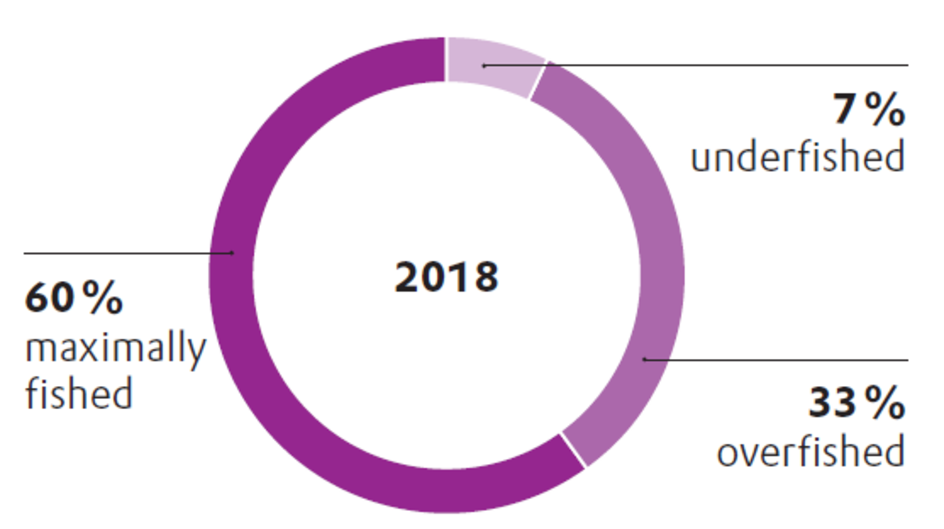
Worldwide, 33 percent of the commercially exploited fish stocks are regarded as overfished and 60 percent as maximally fished. Source: WWF/July 2018
Against this backdrop, efforts over the past few years have achieved massive reductions in the volume of marine resources used in fish feeds, making aquaculture decidedly more sustainable. The vision behind these efforts is to one day raise fish entirely without the use of marine resources. Or to put it less technically, to turn salmon into vegetarians. While dietary regimens that involve no fishmeal are already available, fish oil remains indispensable - for now. What makes fish oil so valuable for aquaculture are the EPA and DHA omega-3 fatty acids it contains. These are vital nutrients, both for salmon and for human beings, and neither species can produce them on its own - our only source of these compounds
is our diet. Dispensing with marine resources entirely, however, will require an alternative source of EPA and DHA.
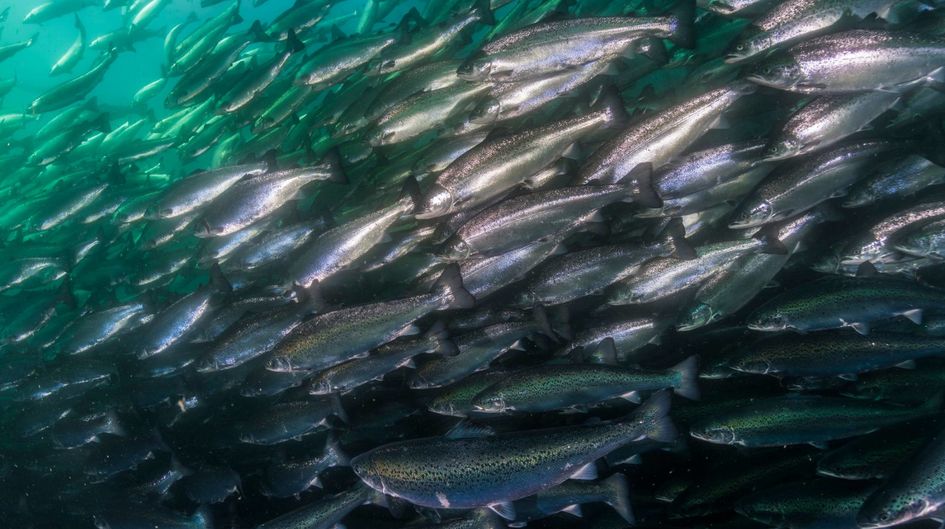
Working with Royal DSM of the Netherlands, Evonik has found a solution: algal oil, which contains EPA and DHA at a concentration of over 50 percent. Omega-3 fatty acids originate in marine algae, and move through the food chain until they end up in salmon and, ultimately, people. So why not just skip over the natural food chain and obtain the valuable omega-3 fatty acids from algal directly? Just one kilogram of algal oil contains the same amount of omega-3 fatty acids as 60 kilograms of fish.
In order to produce algal oil on a commercial scale, Evonik and Royal DSM have established a joint venture called Veramaris. By now Veramaris can supply some 15 percent of the current annual demand for EPA and DHA in the entire salmon farming industry.
That would be more than just good for salmon and people - it would also help preserve the natural basis for human life and allow the aquaculture industry to grow sustainably. In this context, Evonik supports implementation of the United Nations’ Global Goals for Sustainable Development, especially goal 14, which deals with marine life issues. If conducted using as few marine resources as possible, after all, aquaculture will
help supply the growing human population with valuable protein and, at the same time, protect marine life in all its variety.

